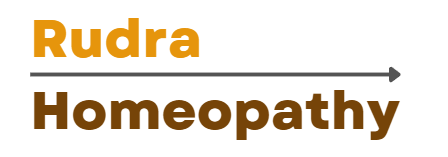Homeopathic Treatment for Alopecia
Alopecia, or sudden hair loss, can be alarming—especially when it appears as bald patches or significant thinning. While conventional treatments often focus on external applications or steroids,...
04, 12 2025
Readmore
Homoeopathy doctor for Piles
Piles, are a common yet often ignored condition that can escalate quickly if left untreated. If you’re experiencing symptoms like pain, bleeding, itching, or a constant feeling of discomfort, it...
30, 11 2025
Readmore
Homeopathic Treatment for Migraine
Migraines are debilitating and often misunderstood, affecting the quality of life of thousands in Gurgaon Sector 83. Triggers vary from person to person—ranging from stress and weather changes t...
26, 11 2025
Readmore
Homeopathic Treatment for Eczema
Homeopathic treatment for eczema is highly recommended because it delivers long-term results without harmful side effects. In Gurgaon Sector 56, where environmental stressors and pollution levels are ...
22, 11 2025
Readmore
Homeopathic Treatment for Fever
Fever is often a sign that your body is fighting an underlying issue—be it infection, inflammation, or immune system imbalance. While conventional medicine offers quick relief through suppressan...
18, 11 2025
Readmore
Homeopathy Treatment Specialist
Rudra Homoeopathic Clinic stands ready to bring you healing that honors your individuality. Under the care of Dr. Khushbu Parekh, we craft remedies based on your full story—health history, emoti...
14, 11 2025
Readmore
Homeopathic Treatment for Fever
Fever can be your body's intelligent response to illness—but repeated or stubborn fevers can signal something deeper. Homeopathy doesn’t just aim to lower the fever—it works to c...
12, 11 2025
Readmore
Homeopathic Treatment for Infertility
When you begin homeopathic treatment for infertility at Rudra Homoeopathic Clinic in Gurgaon Sector 83, the process starts with an in-depth consultation. The doctor takes a detailed case history inclu...
10, 11 2025
Readmore
Homeopathic Treatment for Fever
Fever is more than a symptom—it's a message from your body. Understanding that message is what makes homeopathy so effective. At Rudra Homoeopathic Clinic, we don’t mask the fever; we ...
06, 11 2025
Readmore
Homeopathy Treatment Specialist
Rudra Homoeopathic Clinic is more than a clinic—it’s a haven of trust and wellness. Dr. Khushbu Parekh brings years of homeopathic expertise and a gentle touch to every consultation, ensur...
02, 11 2025
Readmore





